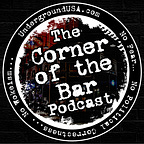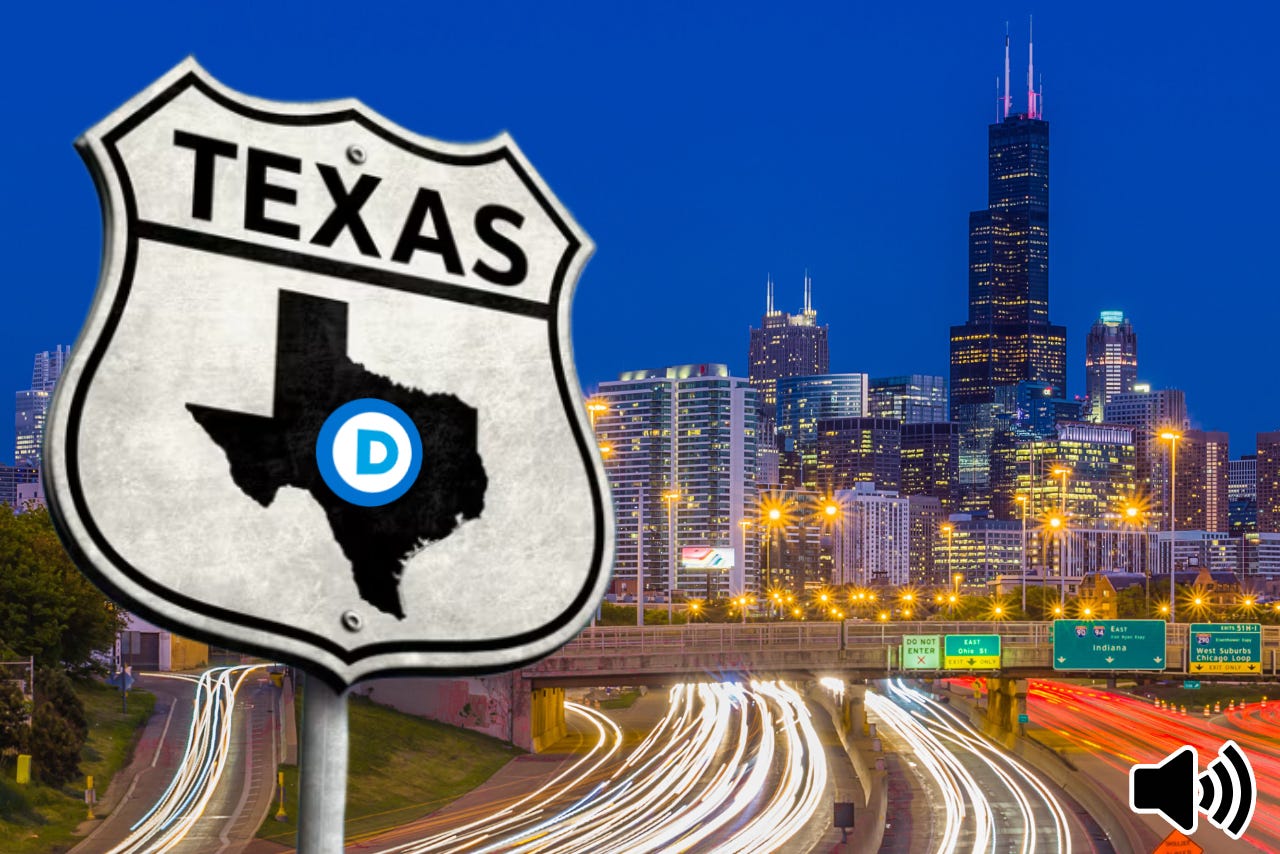On August 3, 2025, over 50 Texas House Democrats fled the state to block a Republican-led effort to redraw congressional maps during a special legislative session called by Governor Greg Abbott. This dramatic walkout, designed to deny the quorum needed for legislative business, represents a profound betrayal of their constituents, their oaths of office, and the principles of a republican government.
By abandoning their posts in Austin, these lawmakers have silenced the voices of their voters, shirked their constitutional responsibilities, invited removal from office, and established a dangerous precedent of mob rule by a small faction. Their actions undermine the very democratic process they claim to defend, raising serious questions about the integrity of representative governance.
The Texas House requires a two-thirds quorum—100 of its 150 members—to conduct business. With at least 51 Democrats fleeing to states like Illinois, New York, and Massachusetts, the legislature is paralyzed, halting not only redistricting but also critical measures like disaster relief for the deadly July 2025 floods that claimed over 130 lives.
Constituents, particularly in districts like those in the Rio Grande Valley, where redistricting could reshape representation for historically marginalized communities, are left without a voice. Many of these voters elected Democrats to advocate for their interests, yet their representatives have chosen flight over engagement.
The argument that this walkout protects democracy by preventing a “Trump gerrymander” falls flat when their absence stifles all legislative action, including nonpartisan issues like flood relief. It also flies in the face of Democrats' past actions when in control to execute their own gerrymandering of districts.
As the Republican State Leadership Committee noted, these lawmakers are neglecting their responsibility to their voters, who expect elected officials to show up and work, not flee to avoid votes they might lose. This tactic prioritizes political theater over advocacy, effectively disenfranchising Texans during a pivotal moment and undermining trust in the democratic process.
The Texas Constitution grants the governor the authority to call special sessions to address urgent matters, a power Abbott exercised to include redistricting in the current session. By refusing to attend, Democrats are failing to uphold their oath to serve their constituents and respect the constitutional framework. Governor Abbott has called their actions “un-Texan” and an abandonment of their responsibilities, a sentiment echoed by House Speaker Dustin Burrows, who warned of consequences for those who persist in this obstruction.
This is not the first time Democrats have employed this tactic; in 2003 and 2021, they fled to block redistricting and voting bills, respectively, but both efforts ultimately failed to stop the legislation. This repeated strategy suggests a pattern of evading responsibility rather than engaging in the hard work of negotiation and compromise inherent to legislative governance. Such behavior disrespects the constitutional system they swore to uphold and sets a precedent for avoiding accountability whenever political stakes are high, weakening the foundation of representative democracy.
Governor Abbott and Attorney General Paxton have taken a hardline stance, arguing that the fleeing Democrats have forfeited their seats by abandoning their posts. Abbott has cited a 2021 legal opinion from Paxton, which suggests that a court could declare a lawmaker’s seat vacant for such actions.
On August 5, 2025, Abbott escalated this threat by asking the Texas Supreme Court to expel Representative Gene Wu, chair of the House Democratic Caucus, for leading the walkout. Paxton has gone further, requesting the court to declare vacancies for 13 absent Democrats and even seeking enforcement of arrest warrants in Illinois. Texas House rules impose fines of $500 per day for absent lawmakers, and Abbott has suggested that accepting funds to cover these fines could constitute bribery, further justifying legal action.
While these measures may seem extreme, they are grounded in the principle that elected officials cannot abandon their roles without consequence. Allowing lawmakers to flee without repercussions would incentivize further disruptions, eroding the stability of the legislative process and potentially encouraging similar tactics in other states.
By leveraging their numbers to halt the legislature, this minority of 51 lawmakers is effectively holding the state hostage, prioritizing their political agenda and the will of their political party’s ideology over the will of the broader electorate.
Governor Abbott warned that allowing a small fraction of recalcitrant lawmakers to run out the clock could bankrupt the state by necessitating a litany of special sessions, each costing taxpayers millions. This tactic mirrors mob rule, where a determined minority disrupts governance to achieve its ideological and/or political ends, bypassing the deliberative process of a republican system of government.
As State Representative James Talarico acknowledged, breaking quorum is an extreme step and a last resort, yet Democrats have chosen it repeatedly, knowing it delays but rarely prevents outcomes. This approach undermines the checks and balances of representative democracy, where debate and voting—not obstruction—are the mechanisms for resolving disputes. The Democrats’ flight risks normalizing such tactics, encouraging other states to follow suit in a redistricting arms race that threatens national electoral stability and the integrity of the democratic process.
What would happen if Democrats in the US Congress adopted this strategy? If a significant number of congressional Democrats fled Washington, DC, to break quorum and block legislation? The federal government could grind to a halt, delaying critical actions like budget approvals and national security measures.
Unlike Texas, where state law allows for fines and potential expulsion, Congress has fewer mechanisms to compel attendance, potentially prolonging paralysis. Such a move would deepen partisan divides, erode public trust in federal institutions, and invite retaliatory tactics from Republicans, further destabilizing national governance.
The precedent set by Texas Democrats, if scaled to the federal level, could plunge the nation into legislative chaos, undermining the republican framework that relies on elected officials engaging in the legislative process, not abandoning it.
The Texas Democrats’ decision to flee the state is a multifaceted failure of leadership. By silencing, by disenfranchising their constituents, they abandon those who elected them to advocate for them in Austin.
By shirking their constitutional duties, they disrespect the governor’s authority and the legislative process. By inviting removal from office, they risk their own political futures for a temporary delay. Most critically, their actions constitute a form of small faction mob rule, undermining the republican principles that ensure governance by the majority through orderly processes.
While they claim to protect democracy, their flight achieves the opposite, eroding trust in institutions and setting a dangerous precedent for future legislative standoffs.
In the age of advanced AI, one would think that the drawing of congressional districts would be a task removed from the hands of political opportunists who create congressional districts with gerrymandered patterns that would make any jigsaw puzzle maker envious. But I guess that’s another subject for another day…On August 3, 2025, over 50 Texas House Democrats fled the state to block a Republican-led effort to redraw congressional maps during a special legislative session called by Governor Greg Abbott. This dramatic walkout, designed to deny the quorum needed for legislative business, represents a profound betrayal of their constituents, their oaths of office, and the principles of a republican government.
By abandoning their posts in Austin, these lawmakers have silenced the voices of their voters, shirked their constitutional responsibilities, invited removal from office, and established a dangerous precedent of mob rule by a small faction. Their actions undermine the very democratic process they claim to defend, raising serious questions about the integrity of representative governance.
The Texas House requires a two-thirds quorum—100 of its 150 members—to conduct business. With at least 51 Democrats fleeing to states like Illinois, New York, and Massachusetts, the legislature is paralyzed, halting not only redistricting but also critical measures like disaster relief for the deadly July 2025 floods that claimed over 130 lives.
Constituents, particularly in districts like those in the Rio Grande Valley, where redistricting could reshape representation for historically marginalized communities, are left without a voice. Many of these voters elected Democrats to advocate for their interests, yet their representatives have chosen flight over engagement.
The argument that this walkout protects democracy by preventing a “Trump gerrymander” falls flat when their absence stifles all legislative action, including nonpartisan issues like flood relief. It also flies in the face of Democrats' past actions when in control to execute their own gerrymandering of districts.
As the Republican State Leadership Committee noted, these lawmakers are neglecting their responsibility to their voters, who expect elected officials to show up and work, not flee to avoid votes they might lose. This tactic prioritizes political theater over advocacy, effectively disenfranchising Texans during a pivotal moment and undermining trust in the democratic process.
The Texas Constitution grants the governor the authority to call special sessions to address urgent matters, a power Abbott exercised to include redistricting in the current session. By refusing to attend, Democrats are failing to uphold their oath to serve their constituents and respect the constitutional framework. Governor Abbott has called their actions “un-Texan” and an abandonment of their responsibilities, a sentiment echoed by House Speaker Dustin Burrows, who warned of consequences for those who persist in this obstruction.
This is not the first time Democrats have employed this tactic; in 2003 and 2021, they fled to block redistricting and voting bills, respectively, but both efforts ultimately failed to stop the legislation. This repeated strategy suggests a pattern of evading responsibility rather than engaging in the hard work of negotiation and compromise inherent to legislative governance. Such behavior disrespects the constitutional system they swore to uphold and sets a precedent for avoiding accountability whenever political stakes are high, weakening the foundation of representative democracy.
Governor Abbott and Attorney General Paxton have taken a hardline stance, arguing that the fleeing Democrats have forfeited their seats by abandoning their posts. Abbott has cited a 2021 legal opinion from Paxton, which suggests that a court could declare a lawmaker’s seat vacant for such actions.
On August 5, 2025, Abbott escalated this threat by asking the Texas Supreme Court to expel Representative Gene Wu, chair of the House Democratic Caucus, for leading the walkout. Paxton has gone further, requesting the court to declare vacancies for 13 absent Democrats and even seeking enforcement of arrest warrants in Illinois. Texas House rules impose fines of $500 per day for absent lawmakers, and Abbott has suggested that accepting funds to cover these fines could constitute bribery, further justifying legal action.
While these measures may seem extreme, they are grounded in the principle that elected officials cannot abandon their roles without consequence. Allowing lawmakers to flee without repercussions would incentivize further disruptions, eroding the stability of the legislative process and potentially encouraging similar tactics in other states.
By leveraging their numbers to halt the legislature, this minority of 51 lawmakers is effectively holding the state hostage, prioritizing their political agenda and the will of their political party’s ideology over the will of the broader electorate.
Governor Abbott warned that allowing a small fraction of recalcitrant lawmakers to run out the clock could bankrupt the state by necessitating a litany of special sessions, each costing taxpayers millions. This tactic mirrors mob rule, where a determined minority disrupts governance to achieve its ideological and/or political ends, bypassing the deliberative process of a republican system of government.
As State Representative James Talarico acknowledged, breaking quorum is an extreme step and a last resort, yet Democrats have chosen it repeatedly, knowing it delays but rarely prevents outcomes. This approach undermines the checks and balances of representative democracy, where debate and voting—not obstruction—are the mechanisms for resolving disputes. The Democrats’ flight risks normalizing such tactics, encouraging other states to follow suit in a redistricting arms race that threatens national electoral stability and the integrity of the democratic process.
What would happen if Democrats in the US Congress adopted this strategy? If a significant number of congressional Democrats fled Washington, DC, to break quorum and block legislation? The federal government could grind to a halt, delaying critical actions like budget approvals and national security measures.
Unlike Texas, where state law allows for fines and potential expulsion, Congress has fewer mechanisms to compel attendance, potentially prolonging paralysis. Such a move would deepen partisan divides, erode public trust in federal institutions, and invite retaliatory tactics from Republicans, further destabilizing national governance.
The precedent set by Texas Democrats, if scaled to the federal level, could plunge the nation into legislative chaos, undermining the republican framework that relies on elected officials engaging in the legislative process, not abandoning it.
The Texas Democrats’ decision to flee the state is a multifaceted failure of leadership. By silencing, by disenfranchising their constituents, they abandon those who elected them to advocate for them in Austin.
By shirking their constitutional duties, they disrespect the governor’s authority and the legislative process. By inviting removal from office, they risk their own political futures for a temporary delay. Most critically, their actions constitute a form of small faction mob rule, undermining the republican principles that ensure governance by the majority through orderly processes.
While they claim to protect democracy, their flight achieves the opposite, eroding trust in institutions and setting a dangerous precedent for future legislative standoffs.
In the age of advanced AI, one would think that the drawing of congressional districts would be a task removed from the hands of political opportunists who create congressional districts with gerrymandered patterns that would make any jigsaw puzzle maker envious. But I guess that’s another subject for another day…
Then, when we return, our segment on America’s Third Watch, broadcast nationally from our flagship station WGUL AM860 & FM93.7 in Tampa, Florida.
In Closing…
As we close this episode out, let’s recap a bit.
The Texas Democrats’ flight from Austin is a stark betrayal of their constituents, their oaths, and our Republic’s principles. By abandoning their posts, they’ve silenced voters, dodged constitutional duties, and risked their seats, all while flirting with mob rule. Their actions threaten the stability of our democratic process, prioritizing politics over people.
If this tactic spreads, imagine the chaos in Congress—legislation stalled, trust eroded. Texans, and, in fact, all Americans, deserve better.
We all must demand integrity from our elected officials, urging them to serve the voters first and foremost, not their political tribes. We need to hold them accountable for their selfish acts and subject them to the principles of our Republic.
Until next time…


















